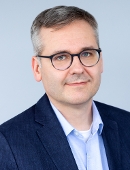Biography
Research Topics
Apoptosis/Cell Death, Cell Biology, Developmental Biology, Embryology, Epigenetics, Gene Regulation, Gene Therapy, Stem Cells, Tissue Engineering, Transcription Factors, Transcriptional Activation and Repression
Apoptosis/Cell Death, Cell Biology, Developmental Biology, Embryology, Epigenetics, Gene Regulation, Gene Therapy, Stem Cells, Tissue Engineering, Transcription Factors, Transcriptional Activation and Repression
Multi-Disciplinary Training Area
Development Regeneration and Stem Cells [DRS]
Development Regeneration and Stem Cells [DRS]
